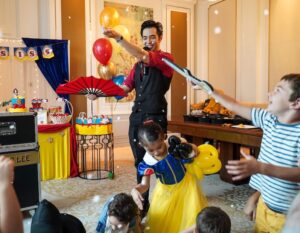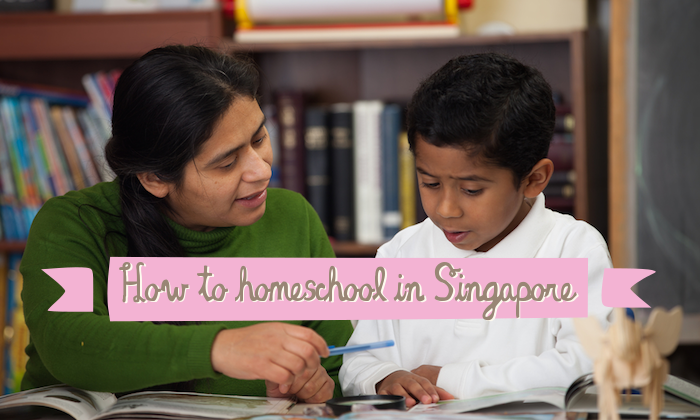
Your Guide to Homeschooling in Singapore
Daniel* couldn’t speak when he was 5. He couldn’t read when he was 10. His mother was told he would never function in the world. But learning isn’t always linear; some children only progress when ready and then do so very quickly, like Daniel, who has Asperger’s Syndrome. His mom homeschooled him and her hard work paid off — Daniel entered a bachelor’s degree program when he was just 16.
Daniel is now 21 years old, living independently and working in Sydney, Australia. He has a diploma from Central Queensland University with a dean’s commendation in Aviation Theory and Mechanical Engineering. He volunteers on weekends and does hosting at his church for over 5,000 people. He is strong and self-assured; he knows people talk about his “disability” but he is confident in his abilities so it doesn’t bother him.
Academic success opens doors, but not all kids thrive in the traditional school setting. Schools around the world feel the pressure to teach more and teach it faster to keep up in international rankings, but to what end? To keep up, parents feel pressured to put their kids in enrichment classes every day of the week, which then raises the bar for all kids in the classroom to keep up, and so it spirals on.
There is a growing backlash against these trends. This very popular (and entertaining) talk by Ken Robinson highlights the changing paradigm in education today. In America, over 2 million students are now learning at home, and the statistics are incredible about homeschooling success. Celebrities like Will Smith and Evelyn Tan are homeschooling, and there are plenty of homeschooling success stories out there among celebrities and others.
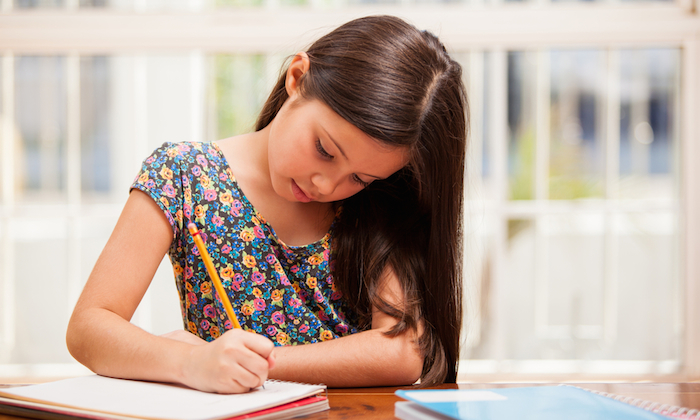
Why Homeschool?
Homeschoolers avoid constant testing and ranking, bullying situations, a heavy homework load and long school hours. Some international families homeschool because they cannot find places in Singapore’s local school system and international school fees are too expensive for them. Others want to provide a religious education, like the Ong family, or have kids with special needs ranging from ADD to gifted that can be accommodated better at home. The TEDx talk by Logan LaPlante has over 8 million views sharing a kid’s point of view on “Hackschooling”. It all sounds incredibly attractive in light of the mounting pressures kids face in school today.
What Does Homeschooling look like?
There are as many varieties of homeschooling out there as there are parenting styles. Some people replicate a traditional school environment in their home, complete with workbooks, charts, blackboard or whiteboard, and textbooks. You can buy full curricula that will come with everything you need for a particular year of school.
Some people like to do a Charlotte Mason style of homeschooling, in which all learning comes from rich literature sources and “living books.” Charlotte Mason was a British educator who believed in respecting the child and educating broadly. Her methods help foster a love of learning by allowing the child to do what he or she is ready for, and only as much as they are able, and encourages the child to explore of nature, art, music, and handicrafts.
Another option is doing a unit study. If your child is really interested in trains, you pull together work for all subjects – reading, spelling, history, science, math, languages – involving trains. Parents typically pull these resources from the Internet, local libraries, or bookstores, but there are sets you can purchase as well.
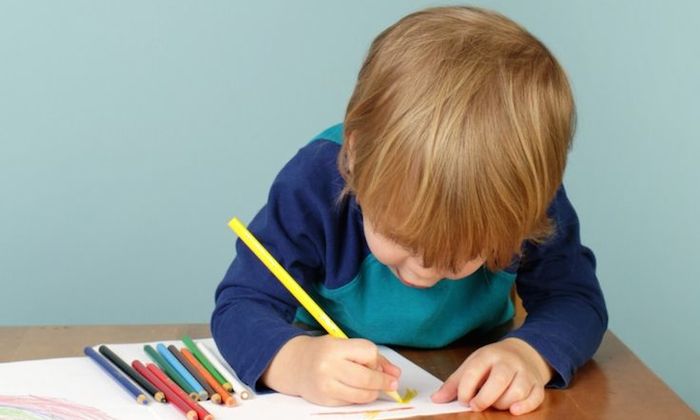
The least traditional approach is called unschooling, or “natural learning”. It has little structure and is truly anything you (and the child) want it be. If your child is interested in lizards, you help them learn everything they can about lizards. If your child is fascinated with fashion, you help them learn everything they can about fashion.
Want more info? Here is a video overview for you busy mamas that want to listen and learn, while this site gives a handful of styles and what a typical day might look like. This website gives reviews of various curricula on the market, while this one shares research about home education. Some people use online curricula like Time 4 Learning and Khan Academy, while some prefer to purchase workbooks; most use a combination.
Each child will be different in terms of disposition and learning style. Local homeschooling mama Diana Tan Robinson says, “You’ve got to do what works for you.” If it isn’t working, try something else. “Some parents have to try multiple curriculums,” says Ellen Porter, another homeschooling mama.
Where Can I Find Support for Homeschooling?
Online resources abound like Singapore Homeschooling, Homeschool Singapore, and Singapore Homeschooling Association. You can join a co-op or find others to join you through Meetup.com or Facebook. Ellen Porter turned her child’s casual playgroup into a homeschool when the others wanted to homeschool too. Educational standards for Singapore, the United States, the United Kingdom and others are online. There are enrichment programs all over the island for outsourcing along with Boy Scouts and Girl Scouts, Girl Guides, and all kinds of extracurricular activities to make friends and get active.
What are the Benefits?
Homeschooled kids can master content more quickly, leaving more time for play. Deep friendships are formed within small co-op groups. The flexibility allows for travel, taking lessons on the road and studying countries firsthand. It accommodates family illness and emergencies because you control the pace. Field trips can be daily, doing experiential learning at the grocery store, the science center, or the hawker center. As Diana Tan Robinson says, “Homeschooling is doing life.” Your child can follow his or her passions in real time. Kids generally develop independence, maturity, and good questioning abilities from homeschooling. You also have time to teach life lessons. For Diana, “Cultivating your child’s heart is most important.”
Homeschooling may even give you an edge for university. Yen Siow from Swinburne University in Melbourne says non-direct applicants are looked at very holistically because they do not fit the mold. The sum total of their online courses, work or internship experience, and other learning experiences are looked at individually. From her perspective, homeschooled students have the edge in terms of maturity and preparedness for acclimating to the independence of university life, attributes she values when looking for students who can take on mentoring positions within the university. As Ellen Porter says, “If you do something different, it can set you apart in a good way.”
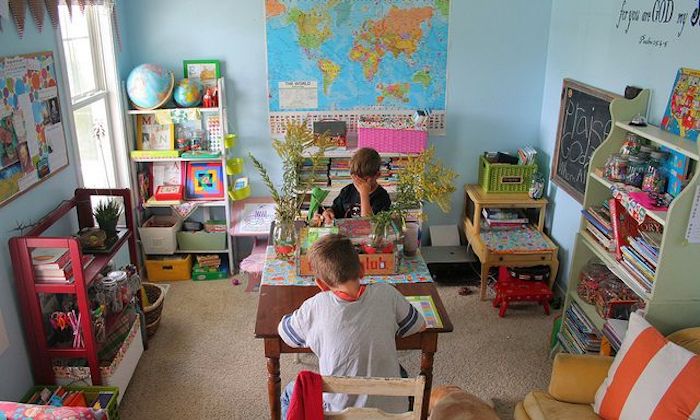
What Challenges do Homeschoolers Face?
Tammy Hitchens homeschooled all twelve of her children successfully and says, “It has been a very profound paradigm shift.” She found that others would lash out at her for her choice, feeling like she was judging their own choices. She faced pressure to teach her kids everything, but traditional school doesn’t even manage that. People worried her kids would not be well socialised. She has found they are confident, engaging with kids and adults of all ages because they had so many opportunities to interact with them in the community through homeschooling. She advises homeschooling only if you really believe in it.
Diana Tan Robinson notes that it requires a lot of self-discipline on the parent’s part, but it is also flexible and responsive to your life. If you are a Singaporean citizen, you must apply for an exemption, and your kids must reach the 33rd percentile on the PSLE.
Some Advice
- Diana Tan Robinson reminds us to be flexible—change is constant.
- As Ellen Porter says, “Learning happens all the time.” Keep your eyes open for teachable moments and people to network with for real life learning experiences.
- If you shift from school to homeschool, you may need to “unschool” for a while to help your kids see you as the teacher. Be aware, it can be very hard to pull them away from their friends and the structure of school.
- If you shift back to school, your kids may be unprepared for the noise level, the slower pace of learning, the lack of time for questioning, and the need to sit still for long periods of time.
- Have fun with it. Tammy Hitchens (read about this mama of 13 kids here) once built a model of an ear out of tunnels and materials from home so that the kids could travel through the ear like a sound wave. Interactive lessons like that stick with your kids and are lots of fun.
In Singapore, whatever you choose, your kids will receive a high quality education. Singapore’s schools are ranked among the best in the world, and the Ministry of Education is always working to improve schools even further. Whether you choose to homeschool completely, during school breaks, or not at all, it is wonderful to have such stellar educational opportunities available to us.
(*name changed for privacy)






 View All
View All





 View All
View All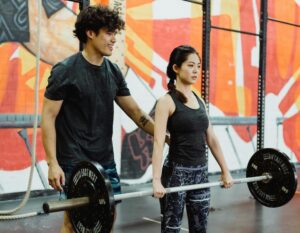






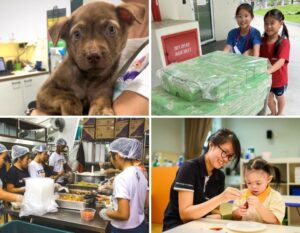




 View All
View All


